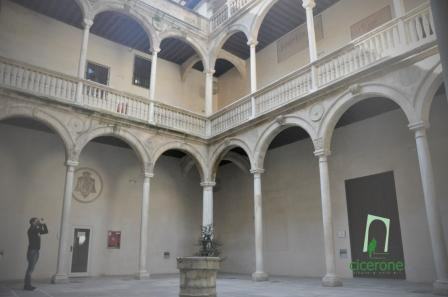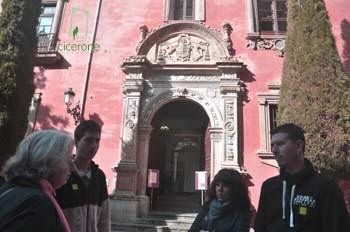
This unique building dates back to the 16th century, built between 1527 and 1532 under the order of Emperor Charles V in order to house the classrooms belonging to the Christian University and the Imperial College of Santa Cruz de la Fe. Previously the Madrasa, the Koranic University headquarters, was located in front of the Merchants Market. After more than two centuries of university use, and once the university and college were moved to the current office in the Facultad de Derecho (Law Faculty), in 1769 the building was occupied by the Ecclesiastical Curia.


